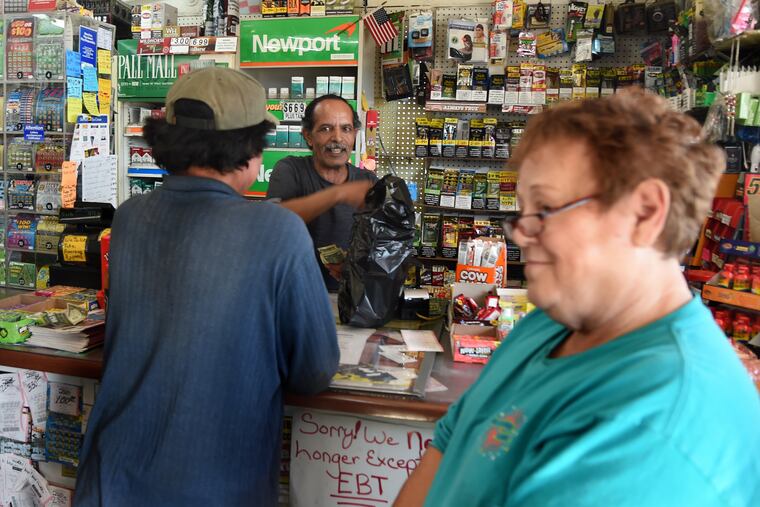We stopped in Scranton, South Carolina — population 827 — to ask about Joe Biden
We stopped in Scranton, S.C., to see what people here think of Biden, the native of another Scranton 600 miles away, fighting for his political survival this weekend.

SCRANTON, S.C. — On the road east to Conway, where Joe Biden spoke Thursday night in the critical final days before the South Carolina primary, you pass through the very small town of Scranton.
Population 827, Scranton has a main commercial strip about a mile long, with a Dollar General, a thrift store, and a barbecue restaurant, once home to the Scranton Colored Schoolhouse. The residential neighborhood — divided by a stretch of railroad — is dotted with brick churches. Yelp describes the town as a sneaky speed trap on the way to Myrtle Beach.
For a state with a nationally watched primary happening in less than 72 hours, Scranton didn’t seem too riled up. There wasn’t a single political sign in a yard or along the main drag.
But I decided to stop in anyway and see what people here think of Biden, the native of another Scranton 600 miles away, fighting for his presidential candidacy’s survival in Saturday’s primary.
“The one that was in the White House? I hear about him, see him on the news,” said Roger Floyd, who was erecting a trampoline for his granddaughter when I parked my car nearby to take a picture of the “Historic Scranton South Carolina” sign by his house.
Floyd, a mechanic, said he doesn’t vote. He recommended heading to Charlie’s convenience store a few blocks away because “Charlie will talk your ear off.”
The converted gas station is owned by Charlie Mused, a Yemeni immigrant who bought the place 15 years ago. He still sends money home to his family, which is struggling to make ends meet, and criticizes the U.S. government for not doing more to help in Yemen’s humanitarian crisis.
Mused became a citizen a few months ago and says he’ll be voting Saturday. He’s not entirely sure for whom yet. “I’ll see who people are talking the most about. Joe Biden’s good,” he adds. “He’s probably the one I hear the most about.”
Bonnie Lee, an off-duty mail carrier (who said she gets mail meant for Scranton, Pa., all the time), overhears and chimes in. “I don’t like Joe at all,” she said. “He’s kind of shady. But I’m a Republican.” Lee offered that if she had to vote for a Democrat, it would be former New York Mayor Mike Bloomberg.
While waiting for Charlie to finish up his hot dogs on the grill, Gary Lewis, a security officer at a hospital, said he liked Tom Steyer. The businessman is polling third in South Carolina, thanks in part to a huge investment in TV advertising and staffers here. “Bernie’s too old,” said Lewis, 44. “Buttigieg, he’s way too young.”
And Biden? “I’ve had enough of Joe,” Lewis said. “I know my guy won’t win, but I’m going to vote for him all the same."
At the Scranton Schoolhouse Bar-B-Que, where a full buffet of pulled pork, fried chicken, and every side imaginable runs you $9.50, Richard Welsh was already engaged in a full political discussion. Welsh, 79, said he doesn’t feel there has been a clear choice since John F. Kennedy in 1960. Since then, he said, it’s always picking "the lesser of two evils.” He’s a Republican and a Trump supporter, though he likes Biden best of the Democrats, partly because Welsh is from Coatesville, Pa., and went to Pennsylvania State University.
Curtis Benjamin, a well inspector who stopped in for lunch at a table near Welsh, told me — in a whisper — that he’s a Democrat planning to vote for Biden when he gets off work on Saturday. “He supported a lot of the things that didn’t get carried out with Obama,” Benjamin said. “We need someone to turn it all around. I think he can do that.”
Benjamin, sitting in the restaurant that used to be a school, built by the Works Progress Administration in the 1930s to serve the black community, gestured to a plaque on the wall explaining its history when asked if he’d definitely be voting.
“My parents fought hard for me to be here and to have the chance to vote," he said. “A lot of civil rights leaders fought or died. You know what it is? I think Joe understands that.”